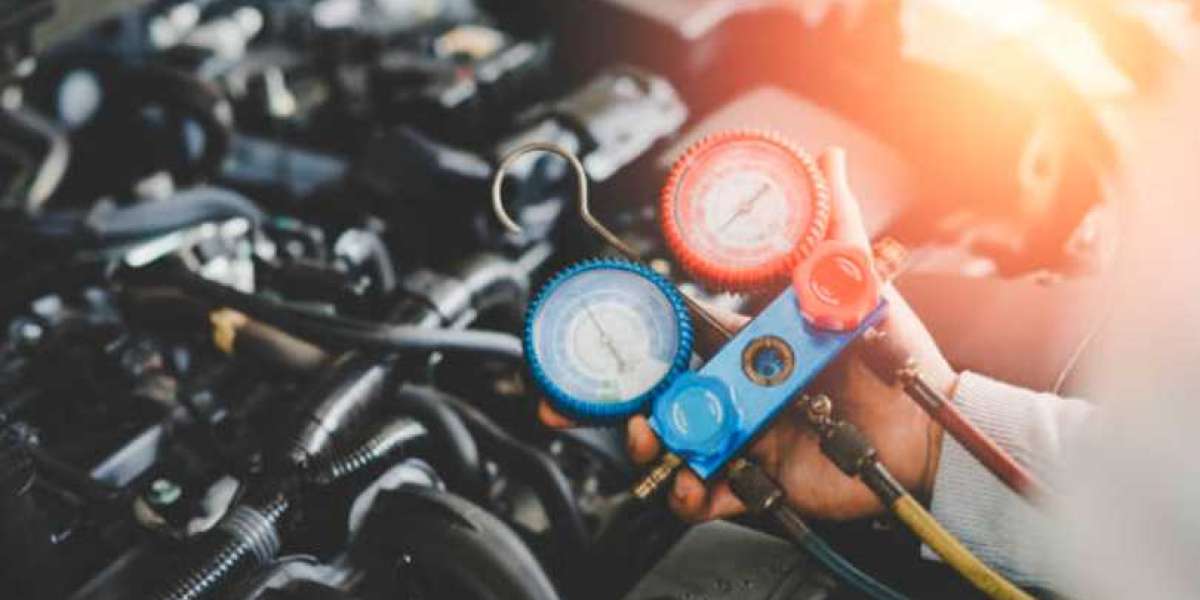Comprehensive Guide to Car AC Gas Refill: Everything You Need to Know
Maintaining the air conditioning (AC) system in your car is essential for a comfortable driving experience, especially during hot summer months. One of the key components of a car’s AC system is the refrigerant gas, often referred to as AC gas. Over time, the refrigerant level can decrease due to leaks or natural wear and tear, reducing the system’s cooling efficiency. When this happens, an AC Gas Refill becomes necessary.
What Is Car AC Gas and Why Is It Important?
Car AC gas, also known as refrigerant, is a chemical compound responsible for absorbing heat from the car’s interior and expelling it outside. This process creates the cool air that flows through the vents. The most common types of AC refrigerants used in vehicles are:
- R-134a: Widely used in cars manufactured after 1994.
- R-1234yf: A more environmentally friendly refrigerant used in newer vehicles.
The refrigerant is circulated in a closed-loop system, which includes components like the compressor, condenser, and evaporator. If the gas level drops, the system cannot cool effectively, leading to poor performance.
Signs Your Car Needs an AC Gas Refill
- Reduced Cooling Efficiency
If your car’s AC is blowing warm or mildly cool air, it’s a clear sign of low refrigerant levels. - Unusual Noises
A failing AC system might produce strange sounds, often caused by low refrigerant levels affecting the compressor. - Visible Leaks
Refrigerant leaks can manifest as oily spots near AC components or under your car. - Foul Odors
If there’s an odd smell when the AC is turned on, it could indicate refrigerant leaks or contamination in the system.
Why Do AC Gas Levels Drop?
Refrigerant levels in your car’s AC system can decrease for several reasons:
- Leaks: Small holes in hoses, seals, or fittings can let refrigerant escape.
- Natural Evaporation: Over time, a minimal amount of refrigerant can naturally dissipate, even in a sealed system.
- Aging Components: Older vehicles may have worn-out parts that can lead to refrigerant loss.
How Often Should You Refill AC Gas?
There’s no one-size-fits-all answer to this question. In most cases:
- Newer vehicles might not need a refill for several years if the system is well-maintained.
- Older vehicles or those with existing issues may require refills every 1–2 years.
Regular maintenance checks can help identify potential problems before they escalate.
Steps Involved in Car AC Gas Refill
Refilling car AC gas is a technical process best handled by professionals. However, here’s an overview of the steps involved:
- Inspection
A thorough check of the AC system is performed to identify leaks or damaged components. - Evacuation of Old Refrigerant
Any remaining refrigerant is evacuated from the system using a vacuum pump to ensure no contaminants remain. - Leak Detection and Repairs
If leaks are found, they need to be repaired before refilling. - Refilling the Refrigerant
The system is refilled with the appropriate type and amount of refrigerant. - Testing
The AC system is tested to ensure proper cooling and functionality.
DIY vs. Professional AC Gas Refill
While DIY kits are available for car AC gas refills, they come with several risks:
- Overfilling or Underfilling: Incorrect amounts of refrigerant can damage the system.
- Environmental Hazards: Improper handling can lead to refrigerant leaks, harming the environment.
- Lack of Leak Repairs: A DIY refill won’t address underlying issues, like leaks or faulty components.
Professionals have the expertise and tools to handle the process safely and effectively, making it the preferred choice for most car owners.
Tips to Maintain Your Car’s AC System
- Regular Inspections
Schedule periodic AC system checks, especially before summer. - Run the AC Often
Use your car’s AC for a few minutes every week, even in winter, to keep the system lubricated. - Clean the Cabin Air Filter
A clogged filter can strain the AC system, so clean or replace it regularly. - Monitor for Leaks
Address any unusual smells or reduced cooling efficiency promptly to prevent bigger issues.
Conclusion
A well-maintained car AC system ensures a comfortable and stress-free driving experience, particularly in warm climates. Keeping your AC gas at optimal levels is crucial for the system’s efficiency and longevity. While refills may seem like a simple task, they require precision and care, making professional service the best option. By addressing refrigerant issues promptly and following maintenance best practices, you can keep your car’s AC system running smoothly for years to come.








